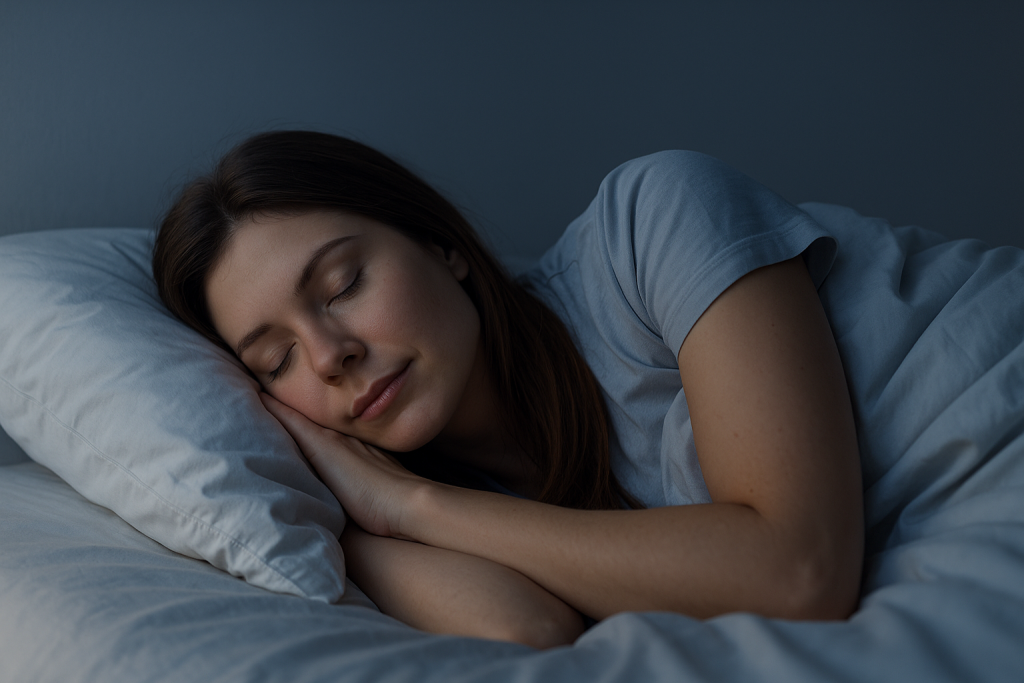
Getting quality sleep is one of the most vital aspects of your overall health. Yet millions of people struggle each night with restlessness, insomnia, or frequent wake-ups. Many turn to sleeping pills, which may offer short-term relief but often come with side effects and risks of dependency. Fortunately, there are natural, effective strategies you can implement to improve your sleep—no pills required.
Whether you’re trying to reset your sleep cycle, recover more effectively, or even lose weight without starving (because yes, good sleep supports healthy metabolism!), these five tips will help you get better rest tonight and every night.
1. Create a Consistent Sleep Routine
Your body loves rhythm. A consistent bedtime and wake-up time—even on weekends—can train your internal clock and improve your sleep quality significantly.
Why It Works
The body’s circadian rhythm governs the natural sleep-wake cycle. If you go to bed and wake up at the same time every day, you strengthen this rhythm, making it easier to fall asleep and stay asleep.
How to Implement It
- Pick a bedtime and stick to it—even on Saturdays.
- Set a reminder 30–60 minutes before your bedtime to start winding down.
- If you’ve been sleeping erratically, make changes gradually. Shift your schedule by 15–30 minutes each night until you reach your ideal time.
Creating this rhythm also supports other health goals, including weight loss, without feeling like you’re starving or constantly fatigued. When you’re well-rested, cravings are easier to control and hormones like leptin and ghrelin (which regulate hunger) stay balanced.
2. Limit Screen Time Before Bed
Your phone, TV, and tablet emit blue light that tricks your brain into thinking it’s still daytime, delaying the release of melatonin—your body’s natural sleep hormone.
Why It Works
Blue light suppresses melatonin and disrupts the natural onset of sleepiness. Reducing exposure helps your brain and body prepare for rest.
How to Implement It
- Avoid screens at least 1 hour before bed.
- If you must use devices, turn on night mode or use blue-light-blocking glasses.
- Replace screen time with calming activities: reading, journaling, stretching, or listening to soft music.
Your night routine should be calming—not overstimulating. Treat it like a signal to your body that it’s time to wind down, not scroll endlessly.
3. Optimize Your Sleep Environment
Your bedroom should be a sanctuary for rest—not a second office or entertainment center. Small tweaks to your surroundings can make a big difference in the quality of your sleep.
Why It Works
Temperature, noise, light, and even scent can affect how well you fall and stay asleep. A peaceful environment signals to your nervous system that it’s safe to relax.
Follow our social media to get an daily update!
How to Implement It
- Keep it cool: Ideal bedroom temperature for sleep is around 60–67°F (15–19°C).
- Minimize noise: Use earplugs, white noise machines, or soft fans.
- Block out light: Use blackout curtains or an eye mask.
- Try relaxing scents: Lavender and chamomile essential oils can promote calmness.
Creating a cozy, quiet environment also has the added bonus of reducing nighttime snacking or late-night stress eating—supporting your goals to lose weight without starving or feeling deprived.
4. Be Mindful of What You Eat and Drink
What you consume in the hours leading up to bed can significantly impact your sleep quality. Eating too much—or too little—can cause discomfort that keeps you awake.
Why It Works
Heavy meals, caffeine, and sugar close to bedtime can overstimulate your body and digestive system. On the flip side, going to bed hungry can disrupt sleep as your body signals hunger.
How to Implement It
- Avoid caffeine after 2 p.m. It can linger in your system for hours.
- Skip sugary snacks and processed food in the evening.
- If you’re slightly hungry before bed, opt for a light, balanced snack such as:
- A banana with almond butter
- A handful of nuts
- Greek yogurt with berries
These options promote satiety and stabilize blood sugar without being too heavy—again, helping you sleep well and even lose weight without starving.
5. Manage Stress and Practice Relaxation Techniques
Mental tension is one of the biggest culprits behind poor sleep. If your brain is racing at bedtime, it can be nearly impossible to fall asleep, even if your body is tired.
Why It Works
Stress triggers the release of cortisol, a hormone that keeps you alert. Managing stress through mindfulness, deep breathing, or light movement calms your mind and helps you drift into sleep more easily.
How to Implement It
- Deep Breathing: Try box breathing—inhale for 4 seconds, hold for 4, exhale for 4, hold for 4.
- Progressive Muscle Relaxation: Slowly tense and release each muscle group from head to toe.
- Journaling: Write down your worries or to-do list so they’re not spinning in your head.
- Meditation or Guided Sleep Stories: Use apps like Calm or Headspace to help settle your thoughts.
Practicing relaxation techniques not only improves sleep but also contributes to a healthier emotional relationship with food and stress—key for anyone trying to lose weight without starving or engaging in restrictive behaviors.
Bonus: Keep a Sleep Journal
If you’re struggling with sleep, tracking patterns can uncover insights. A journal helps you identify habits that help—or harm—your rest.
What to Track
- Bedtime and wake-up time
- Food and drink intake before bed
- Stress levels
- Physical activity
- Quality of sleep and how you felt in the morning
Review your notes weekly to identify patterns. Adjust habits accordingly and celebrate improvements in your sleep and overall well-being.
Final Thoughts: Rest Is a Foundation for Health
Popping a pill may seem like an easy solution for sleepless nights, but it’s not a sustainable or healthy one. By making intentional changes to your routine, environment, and mindset, you can improve your sleep naturally and deeply.
Better sleep doesn’t just mean more energy—it supports your immune system, mood, focus, and yes, even your ability to lose weight without starving. When your body is rested, it’s more likely to function optimally, burn fat efficiently, and curb emotional eating.
So tonight, power down the screens, brew a calming tea, and sink into a consistent routine. Your mind and body will thank you in the morning.



